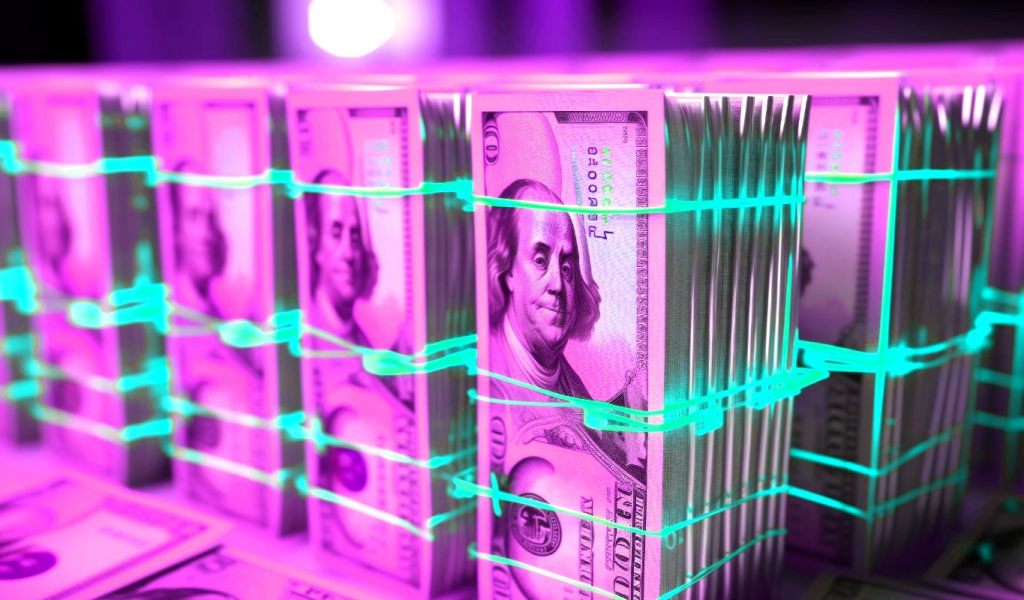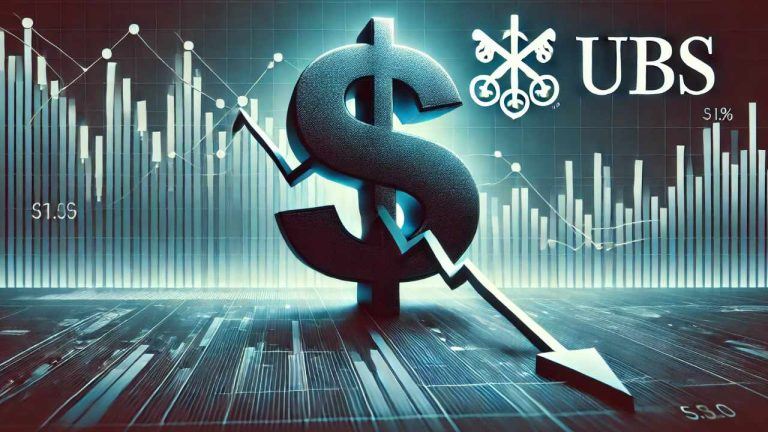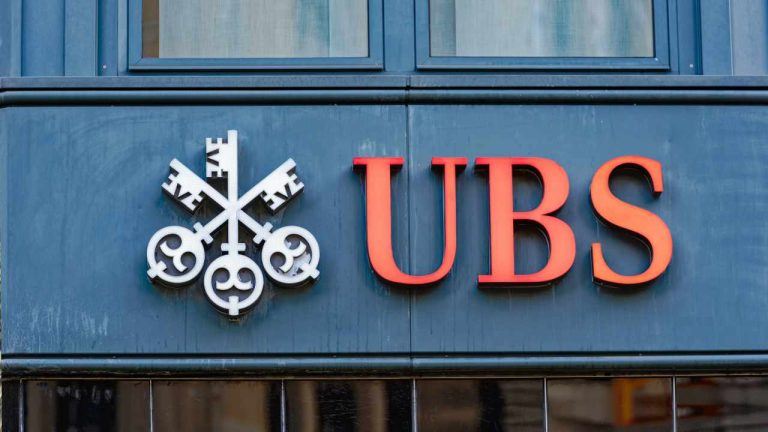
Seven Wall Street giants including JPMorgan Chase and Bank of America believe one asset is primed to rally in the year ahead. The big banks collectively see gold moving to new all-time highs through 2025 amid expectations of more interest rate cuts from the Federal Reserve and more central bank accumulation around the globe, reports […]
The post JPMorgan Chase, Bank of America and Five Wall Street Giants Forecast Relentless Rally for One Asset in 2025: Report appeared first on The Daily Hodl.
 Financial giant UBS expects the U.S. dollar to continue to depreciate, advising investors to reevaluate their portfolios. The bank predicts a medium-term decline due to shrinking interest rate advantages and a growing fiscal deficit. With the dollar down 5% since June, UBS recommends strategies like currency hedging and diversifying into other currencies and assets like […]
Financial giant UBS expects the U.S. dollar to continue to depreciate, advising investors to reevaluate their portfolios. The bank predicts a medium-term decline due to shrinking interest rate advantages and a growing fiscal deficit. With the dollar down 5% since June, UBS recommends strategies like currency hedging and diversifying into other currencies and assets like […] UBS remains optimistic about gold’s potential, despite its current record highs. The Swiss investment bank highlights key factors, including the Federal Reserve’s rate cuts and global geopolitical tensions that are boosting demand for gold as a safe-haven asset. UBS also notes that central bank purchases and investor inflows into gold ETFs are sustaining the metal’s […]
UBS remains optimistic about gold’s potential, despite its current record highs. The Swiss investment bank highlights key factors, including the Federal Reserve’s rate cuts and global geopolitical tensions that are boosting demand for gold as a safe-haven asset. UBS also notes that central bank purchases and investor inflows into gold ETFs are sustaining the metal’s […] UBS reported on Thursday that European real estate markets appear to be entering a new investment cycle, with key indicators pointing to stabilization. “A new cycle starts,” the report said, as investment volumes show signs of bottoming out. After a period of inflation and rising interest rates, the UK saw a 6.5% quarter-on-quarter growth in […]
UBS reported on Thursday that European real estate markets appear to be entering a new investment cycle, with key indicators pointing to stabilization. “A new cycle starts,” the report said, as investment volumes show signs of bottoming out. After a period of inflation and rising interest rates, the UK saw a 6.5% quarter-on-quarter growth in […] UBS reported on Friday that U.S. stocks extended their rally as new economic data, including a 1% rise in July retail sales, eased concerns about a potential recession. Despite the encouraging consumer resilience, UBS cautioned that the risk of a significant economic slowdown remains, especially after weaker July jobs data. Investors are advised to wait […]
UBS reported on Friday that U.S. stocks extended their rally as new economic data, including a 1% rise in July retail sales, eased concerns about a potential recession. Despite the encouraging consumer resilience, UBS cautioned that the risk of a significant economic slowdown remains, especially after weaker July jobs data. Investors are advised to wait […] UBS sees gold as an attractive geopolitical hedge and portfolio diversifier, rating the metal as most preferred in its investment lessons for the second half of the year report. The bank highlights strong market performance driven by AI investment and recommends diversified portfolios across various assets, regions, and sectors to navigate political and economic uncertainties. […]
UBS sees gold as an attractive geopolitical hedge and portfolio diversifier, rating the metal as most preferred in its investment lessons for the second half of the year report. The bank highlights strong market performance driven by AI investment and recommends diversified portfolios across various assets, regions, and sectors to navigate political and economic uncertainties. […] UBS is witnessing a transformative shift in client interactions driven by artificial intelligence, according to Sabine Keller-Busse, the head of the Swiss bank’s domestic business. Keller-Busse compared the change to how patients now approach doctors with self-diagnosed conditions. UBS Sees AI Revolutionizing Financial Interactions Artificial intelligence (AI) is reshaping the banking industry, with clients increasingly […]
UBS is witnessing a transformative shift in client interactions driven by artificial intelligence, according to Sabine Keller-Busse, the head of the Swiss bank’s domestic business. Keller-Busse compared the change to how patients now approach doctors with self-diagnosed conditions. UBS Sees AI Revolutionizing Financial Interactions Artificial intelligence (AI) is reshaping the banking industry, with clients increasingly […] The UBS editorial team, comprising financial analysts and economists at UBS, a prominent global financial services firm, recommends purchasing gold during price dips rather than selling. Recently, gold prices fell by over $80 per ounce due to strong U.S. payroll and earnings data, coupled with a rise in the 10-year U.S. Treasury yield and the […]
The UBS editorial team, comprising financial analysts and economists at UBS, a prominent global financial services firm, recommends purchasing gold during price dips rather than selling. Recently, gold prices fell by over $80 per ounce due to strong U.S. payroll and earnings data, coupled with a rise in the 10-year U.S. Treasury yield and the […] UBS has raised its gold price forecast following a record surge in gold prices, driven by anticipated Federal Reserve rate cuts and a weakening U.S. dollar. The main factors behind the investment bank’s upgraded gold price prediction include softer U.S. economic data, increased central bank demand, and ongoing geopolitical uncertainties. UBS Revises Gold Price Prediction […]
UBS has raised its gold price forecast following a record surge in gold prices, driven by anticipated Federal Reserve rate cuts and a weakening U.S. dollar. The main factors behind the investment bank’s upgraded gold price prediction include softer U.S. economic data, increased central bank demand, and ongoing geopolitical uncertainties. UBS Revises Gold Price Prediction […]
Swiss multinational investment bank and financial services company UBS is launching a “tokenized money market fund” pilot program on Ethereum (ETH). In a new blog post, UBS Asset Management announces what it calls the “first blockchain-native tokenized VCC fund pilot” in Singapore. Says Thomas Kaegi, Head of UBS Asset Management, Singapore & Southeast Asia, “This […]
The post Banking Giant UBS Launches Tokenized Money Market Fund Pilot on Ethereum (ETH) appeared first on The Daily Hodl.